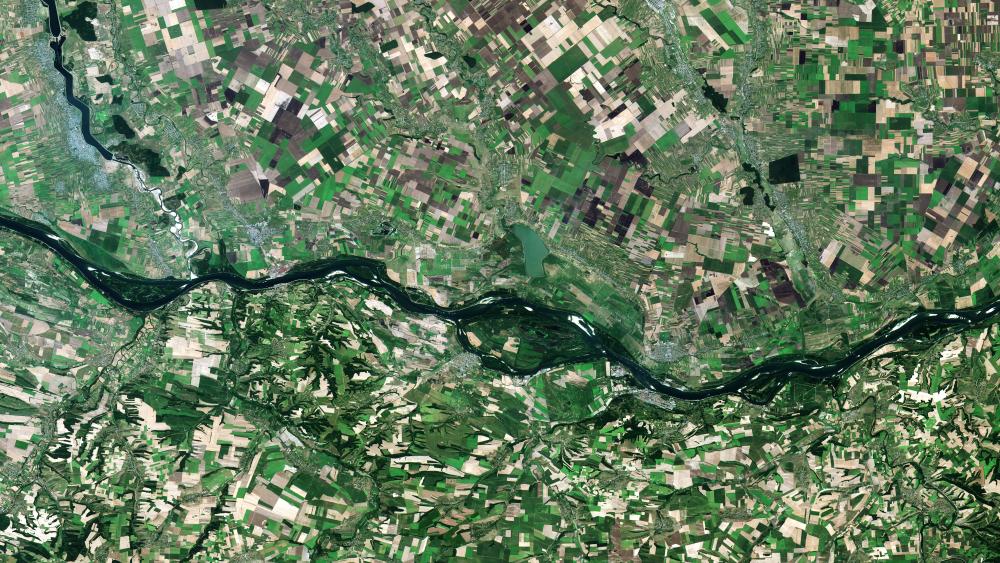
Catchment area of the Danube. Photo: Copernicus Sentinel data, ESA
Resilience in river ecosystems requires that organisms must persist in the face of highly dynamic hydrological and geomorphological variations. Disturbance events such as floods and droughts are postulated to shape life history traits that support resilience, but river management and conservation would benefit from greater understanding of the emergent effects in communities of river organisms. An international team led by Kris Van Looy (Irstea, France) and Christian Wolter from IGB developed a conceptional framework to enable targeted management strategies to adapt river ecosystems to global change. They identified indicators for the three crucial criteria for river ecosystem resilience: Resources, recruitment and refugia. "Interactions between abiotic drivers and biotic aspects of resource use, dispersal, and persistence have clear implications for river conservation and management. To support these management needs, we propose a set of taxonomic, phylogenetic, and life‐history trait metrics that might be used to measure resilience mechanisms", concludes Christian Wolter the aim of the study.
Publication:
Kris van Looy; Jonathan D. Tonkin; Mathieu Floury; Catherine Leigh; Janne Soininen; Stefano Larsen; Jani Heino; N. LeRoy Poff; Michael Delong; Sonja C. Jähnig; Thibault Datry; Nuria Bonada; Juliette Rosebery; Aurelien Jamoneau; Steve J. Ormerod; Kevin J. Collier; Christian Wolter. The three Rs of river ecosystem resilience: resources, recruitment, and refugia. River Research and Applications. - 35(2019)2, S. 107-120.




